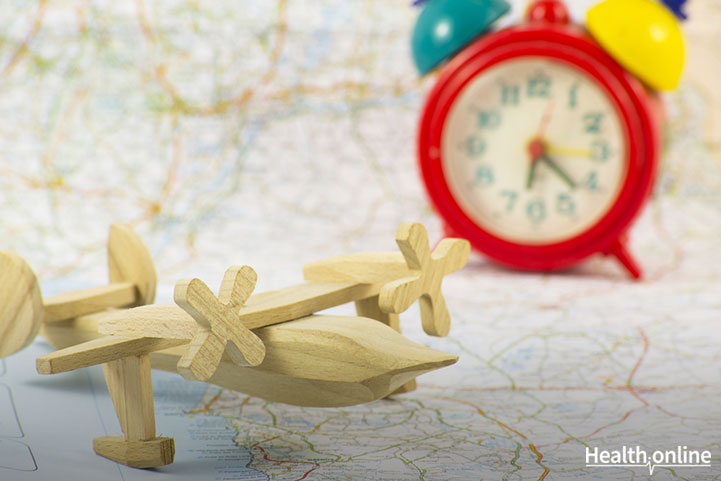
How To Avoid The Drag Of Jet Lag
Travelling is considered to be one of the best investments one can make in his/her lifetime. But traveling without taking care of your health leads to a waste of time and energy, as well as money. The most common problem associated with traveling in flight or even trekking high altitudes is Jet Lag. Before discussing how to avoid jet lag, let us understand precisely what is jet lag, and what are its symptoms.
What is Jet Lag?
Jet lag is a temporary health problem which arises due to traveling in flights from one time zone to another. It is associated with sleep disorders, and tiredness or fatigue symptoms. These are scientifically known as desynchronosis and commonly referred to as flight fatigue . The sleep disorder that arises due to the disruption of the internal body clock, is referred as circadian rhythm sleep disorder.
Symptoms of Jet Lag
There are several symptoms of jet lag, beyond insomnia and fatigue. There are both physical and emotional problems that people go through during a drag of jet lag. The symptoms include:
- Anxiety attacks.
- Stomach problems, such as constipation, diarrhea, and indigestion.
- Dehydration, caused by drinking less water while traveling.
- Headaches, caused by lack of sleep.
- Nausea.
- Constant perspiration and heavy sweating.
- Dizziness and difficulty in coordinating things.
- Sleepiness during the day.
- The feeling of being ill or unwell, known as malaise.
- Memory loss, in extreme cases.
It has been observed that chronic jet lag can even have an adverse impact on the IQ of children and adults!
Things to do before boarding the flight to avoid jet lag
- Try to adjust to the new time zone beforehand: While you’re at home and preparing for your travel, you can adjust or shift your bedtime a little on a daily basis, to get your body used to the time-zone of your destination. For example, if you are going to the east, try sleeping a little earlier for a few days or weeks, if you have the time to make your body adjust to the new bed time.
- Complete your sleep: Before the day of your flight, and even earlier, make sure you get enough sleep. Do not try to shorten your sleep on account of packing or for any other reason, believing that you will make up for it by sleeping on the flight. Sleeplessness can cause the drag of jet lag to be even more severe.
- Have healthy food and exercise: Before boarding the flight, don’t stress your body by consuming food items rich in oil and spices, as this, combined with jet lag, can cause chronic digestion issues. Try to have light food like fruits or whole grains on the day of the flight, to keep you light and to avoid jet lag.
How to avoid jet lag while on a flight?
- Don’t order the spicy cuisine on the menu card: You might be tempted to try out a certain spicy dish from the in-flight menu. Try to avoid doing so. It might not agree with your stomach, and the resultant stomach issues will only be exacerbated by jet lag.
- Don’t confine yourself to the seat: When you can loosen your seatbelt, don’t stick to the seat. Rather take a walk in the cabin, and stretch your legs and arms a little; to make sure your nerves and blood vessels work properly. This is mainly advised for overnight flights.
- Don’t Skip Sleep: In an overnight flight, don’t try to stay awake the whole night. Even if you cannot sleep, try to rest by closing your eyes and listening to some soothing music.
Things to do to avoid post-flight jet lag effects
- Avoid coffee and drink plenty of water or juices: To keep yourself hydrated, you need to have lots of juices and watery items in your body. So make sure you have plenty of water and juices, and cut down on caffeine. This way, you can avoid suffering the dehydration caused by jet lag.
- Go out in the sun and exercise: Studies have shown that exercise and exposure to sunlight go a long way towards curing jet lag. So make sure you get plenty of both. However, be sure to keep yourself hydrated.
- Aid for sleep disorder: The most prominent symptom of jet lag is sleeplessness. Get yourself a sleep aid in order to ensure you get a good night’s sleep. It would be best if you get this sleep aid before your trip, and consult your doctor while doing so.
If any of the aforementioned symptoms persist for long or become unbearably severe, then be sure to get medical attention as soon as possible.
Recommended Video: Water: The Essence of Life




